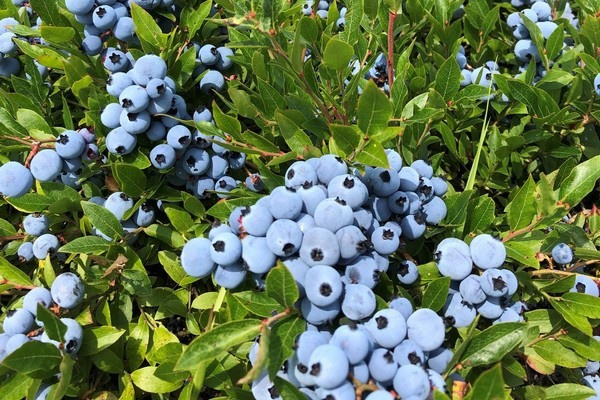Nova Scotia wild blueberries are seeing strong prices following a significantly short crop this season. This comes even though there was a good start to the season.
"We had good pollination weather and a good spring–no frost events or anything like that, so there was optimism going into the summer," says Janette McDonald, executive director of the Wild Blueberry Producers Association of Nova Scotia. However by the end of July, conditions changed quickly because Nova Scotia found itself facing a severe drought.
Difficulties ensued given that very few growers in the province have irrigation systems set up. Many of its wild blueberry fields are set up on steep slopes or hilly regions which aren't conducive to irrigation, even if it was available, and there's also virtually no pond access to surface draw water. "By August we were into harvest and then into September, there were a lot of really hot days and a complete lack of rain."
The season also saw an earlier start to harvest this year. "The unfortunate part of that is, is that there's a lot of custom work that's done and only so many harvesters and usually you can time moving through regions. That starts at the lower end of the province and works its way up. This year, everything was just early and coming all at once," she says. In turn, every day that fruit was left in the field, moisture was lost and further created that reduced volume.
Concerns over wild fires
The dry conditions also prompted a fire ban as well on harvesting in Nova Scotia for wild blueberries, much of which are sent to processing. "Not only did it restrict when you could harvest in the fields, but it increased fire watch so you needed to have a water source on site to ensure that if equipment or the ground caught on fire, you could extinguish it. That just added to resources that were needed during harvesting," says McDonald.
All of this has left prices paid to the grower for wild blueberries significantly higher than last year. Globally there are also increases on wild blueberry markets, particularly so given inventory was low going into the season and fellow wild blueberry harvesting regions such as New Brunswick and Maine were also hit with drought.
Looking ahead, this year's reduced crop also means that there will be low inventory going into the 2026 harvest. "Everything that was harvested this year is going to be needed for existing markets and contracts," says McDonald. "For Nova Scotia, New Brunswick and Maine there's also some worry about how the sprout fields will do. There is some damage to them from drought this year so there are worries about what the impact will be next year."
Source - https://www.freshplaza.com













